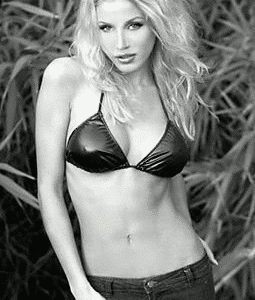At the 2025 Cherry Blossom Open in Maryland, fencing became the latest arena for a growing national debate. Stephanie Turner, a dedicated female fencer, stunned the crowd—not with a match-winning move, but by refusing to compete. Her reason? She was scheduled to face Redmond Sullivan, a transgender athlete. Instead of stepping up to the piste, Turner took a knee.
It wasn’t a tantrum. It wasn’t a spectacle. It was silent, deliberate, and deeply personal. By kneeling, Turner protested a policy she believes disrupts fair competition in women’s sports. And with that single act, she invited the entire sporting world to take a closer look at what fairness really means.

Turner’s Stand: Principles Over Podiums
Turner had already fenced several bouts that day. But when she learned that her next match would be against Sullivan, she made her stance crystal clear without saying a word. Her message? She wouldn’t compete in what she believed was no longer a level playing field.
After the match was forfeited, Turner spoke out, saying, “This is a women’s tournament, and I’m a woman. I won’t compete against a male-bodied athlete.” Her refusal wasn’t personal toward Sullivan—it was a statement about the integrity of women’s categories in competitive sports.
Turner accepted the consequences with open eyes. She knew the risks, and she took them anyway. In fencing, the harshest penalty is a “black card,” which results in disqualification and further disciplinary action. That’s exactly what she received.
Video: Fencer disqualified for protesting competing against trans athlete | NewsNation
An Opponent Caught in the Crossfire
Redmond Sullivan, who had followed all the rules and was cleared to compete based on current policies, appeared shocked by Turner’s protest. According to onlookers, Sullivan warned that the penalty could be severe. Turner nodded—she already knew.
Sullivan, for their part, was there to fence. But the match never happened, and they were left to walk away, caught in the complicated tension between policy, identity, and perception.
USA Fencing’s Official Stance

This isn’t a gray area for USA Fencing. The governing body follows FIE (International Fencing Federation) rules, which prohibit any competitor from refusing to fence an approved opponent—no matter the reason.
After the match, officials escorted Turner to a meeting where she was formally disqualified and handed a copy of the transgender inclusion policy. Despite signing her disqualification, she did so “under protest,” asserting her intent was never about exclusion, but about fairness.
USA Fencing released a statement explaining that the penalty was procedural, not political. “Refusal to fence a properly registered athlete results in immediate disqualification,” a spokesperson said. “It’s not about personal views. It’s about following the rules.”
The Fallout: Public Reaction and Online Firestorms
Video: Female fencer takes a knee rather than face transgender opponent
As news spread, the internet lit up with both support and backlash. Some called Turner brave. Others labeled her discriminatory. Social media turned into a battlefield, with users debating whether sports should create new categories—one for cisgender women, one for transgender women, and so on.
Supporters praised her willingness to take a stand in a politically charged climate. They applauded the way she protested—without hate, without shouting, simply with resolve. Critics, on the other hand, pointed out that Sullivan was following the rules and had every right to compete.
And while some pushed for open dialogue, others chose sides fast. As the clips went viral and hashtags trended, the heart of the matter remained deeply personal for many: fairness, inclusion, and the complicated space where the two often collide.
Athletic Fairness vs. Inclusive Policy: A Growing Divide

This isn’t just about fencing. It’s about a bigger question every sport is being forced to answer. What does fairness look like in a world where gender identity and biological sex are no longer one-size-fits-all?
Supporters of transgender inclusion argue that identity is valid and deserves respect in all arenas, including sports. Critics worry that physiological differences, especially in strength- or speed-based sports, create imbalances that can’t be ignored.
The fencing community, like many others, is now caught in this clash. And it’s not an easy one to solve.
Turner’s Future: A Career on Pause but a Voice Amplified
Stephanie Turner’s fencing career may be on hold, but her voice has grown louder than ever. She knows her protest could cost her sponsorships, rankings, and maybe even her future in the sport. Still, she says she has no regrets.
“Sometimes standing still speaks louder than running forward,” she said in a brief follow-up interview.
Turner believes the ripple effect from her decision could lead to deeper conversations about how sports should evolve. Whether that means adjusting policies or simply creating more transparency, she hopes her stand brings attention—not division.
Where Do We Go from Here?

This incident isn’t going to be the last. As more transgender athletes enter competitive spaces, sporting organizations are being forced to face new questions. Should gender categories be redefined? Should alternative divisions be created? Or is inclusion about adjusting our lens entirely?
What’s clear is that the lines between policy, fairness, and identity are more complex than ever. And with athletes like Turner and Sullivan caught in the middle, there’s no easy answer—only ongoing conversation.
Conclusion: A Defining Moment in Modern Sports
Stephanie Turner’s silent protest wasn’t about attacking an individual. It was about defending a principle she holds close. Right or wrong, she chose to speak through action, and the sports world is still reacting.
Her story brings to the surface one of the most pressing issues in modern athletics: how to honor every athlete’s identity while preserving fair play. It’s messy. It’s emotional. And it’s far from over.
Whether this moment sparks lasting policy changes or remains a flashpoint in the broader debate, one thing is certain—Stephanie Turner’s refusal to fence became more than a match forfeited. It became a moment of reckoning. One that continues to echo far beyond the strip.


